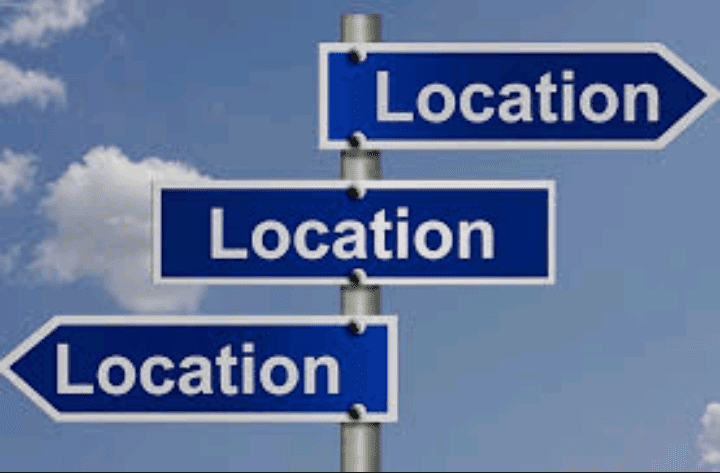The location of your business affects the performance of your business either towards a positive or negative way. Let’s take for instance, if you build a poultry farm by an express major road, the government and neighbors will start complaining about the odor and start pressurizing you to push the farm inside where there are no much people leaving within the locality.
At the same time, if you then open lets say a supermarket inside the same rural location, definitely your market rate will reduce because you will not get a lot of customers coming from the city passing other super markets on their way and coming into the village where your business is just to come and patronize you.
Your choice of business location affects your income, your expenses, and sometimes whether you’re operating legally. Even in an age where people can buy and sell through the internet and project teams can collaborate from various states and countries, location plays a significant role in your company’s success or failure.
In summary:
If your business address is far away from your target audience, especially if you sell offline, prospects may find it difficult to locate you. Conversely, if you had a city center location or one which is well-regarded as a business center, prospects be may be more inclined to convert.
The location of a business positions is not only meant to attract a customer base but also to attract the right sort of talent to make the business a success.
A business’s location also helps it create a brand and image, since there are always parts of a city that carry a reputation, whether it is a reputation for simple living or a reputation for luxurious extravagance.
Read also: Connection between Marketing and Sales
In order to figure out how important your location is to your business, try attempting to answer these questions:
- Does the success of your company rely heavily on customer traffic?
- Is convenience important to you and your employees?
- Do you rely on suppliers of goods?
- Is brand visibility important for your growth?
- What about the legal implications of your location?
The importance of a good location to your business

Some of the major importance of choosing a good location for your business include but not limited to the following:
It will increase your Brand Visibility
The location of your business can also influence the business’s ability to market itself, the cost of transportation of goods, the competition it faces from businesses, the total cost of operation, taxes the business owner has to pay and the regulations they must follow.
Enables easy access to your business location
There is no doubt that a business in the commercial area of a city gives the perception that the business is successful and can afford a good location.
Basically, you just want to be wherever your customers are and make it as convenient as possible to visit you. Location is of utmost importance especially to businesses that sell goods or services directly to customers at brick-and-mortar establishments.
Read also: Marketing Strategies for Small Businesses – Part 1
Visibility of your Business is Key
The visibility of your business is key towards growth of your business because even when you do everything else right, your business will fail if prospective customers do not realize it exists.
Businesses in areas that see a lot of traffic, both pedestrian and vehicle traffic, tend to be more successful than those tucked away in industrial parks and sleepy strip malls because customers see them.
Similarly, your business has to be close enough to your customer base for them to see it and reach it easily. It can be worth the cost of the higher rent it costs to open up on a main road or near a busy intersection because you will recoup that cost in increased sales.
When you do market research, study the patterns your target demographic follows to determine where they spend their time. They are much more likely to spend money in a location where they are already spending time than in a location that is out of the way for them.
